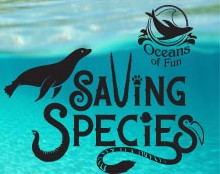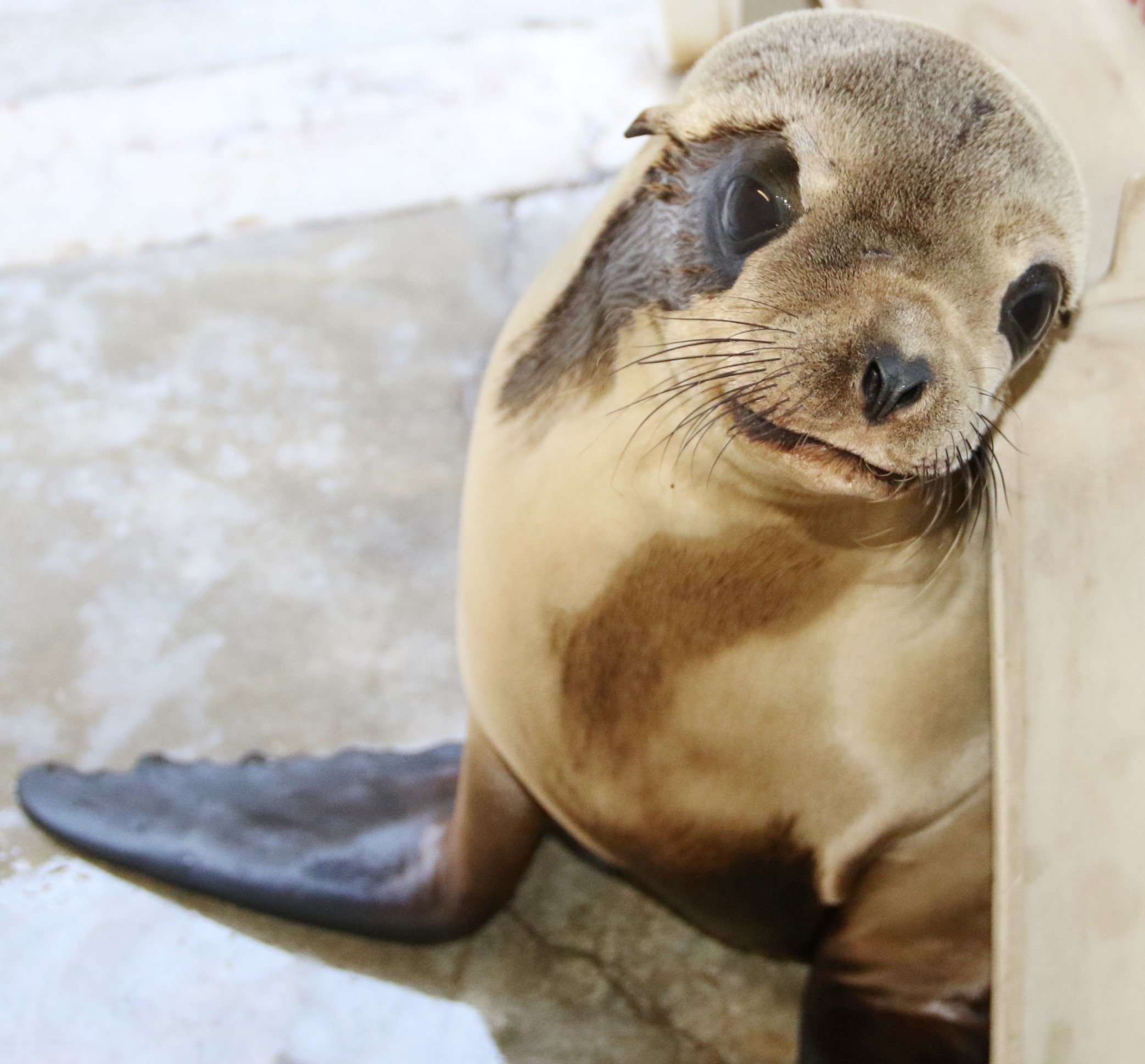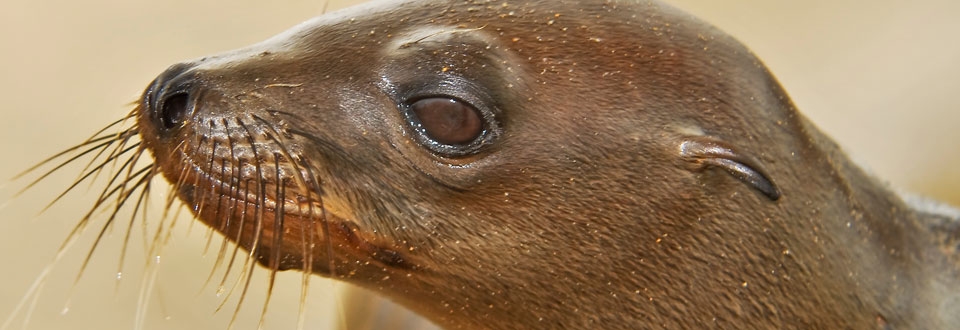
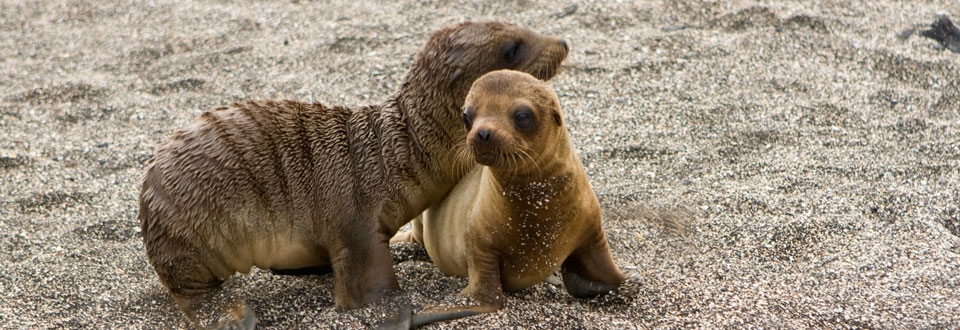
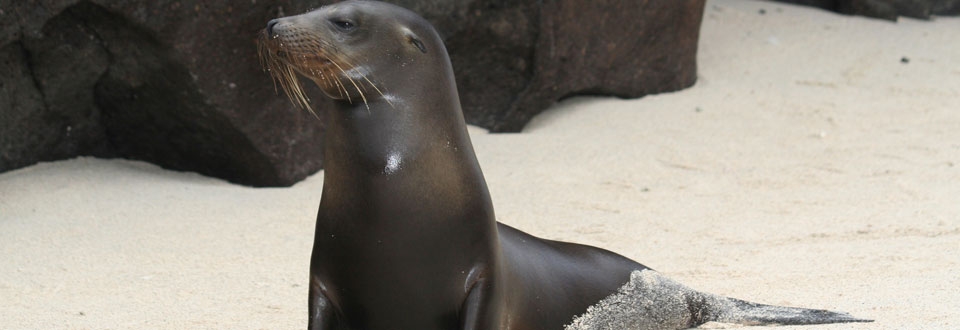
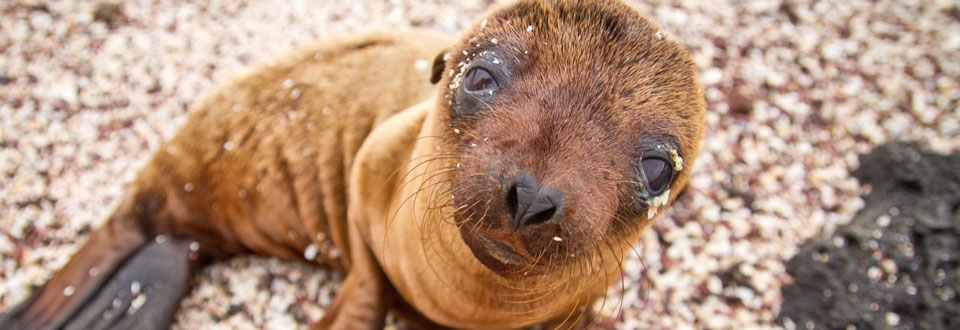
Moana's Second Chance
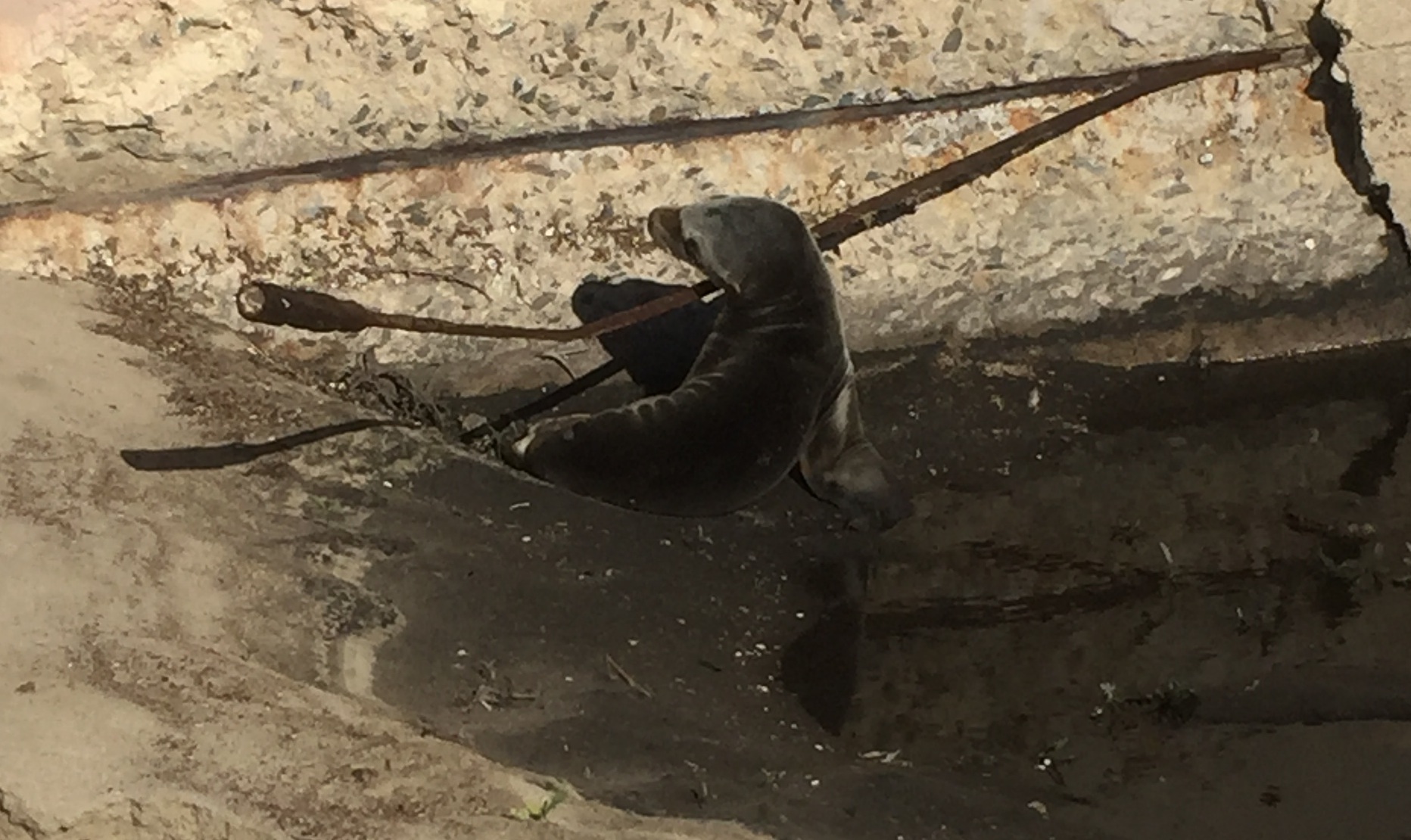 On November 21, 2016, a call came in from a lifeguard to the Pacific Marine Mammal Center regarding a stranded animal near Huntington Beach, California. This four-month old California sea lion pup was trapped in storm drain, sick, trembling, and lethargic. The rescue team jumped into action and was successfully able to rescue her and transport her to the center for treatment.
On November 21, 2016, a call came in from a lifeguard to the Pacific Marine Mammal Center regarding a stranded animal near Huntington Beach, California. This four-month old California sea lion pup was trapped in storm drain, sick, trembling, and lethargic. The rescue team jumped into action and was successfully able to rescue her and transport her to the center for treatment.
Upon arrival, she was treated for a variety of ailments including dehydration, high fever, and seizures. She was severely underweight at only 20 pounds whereas pups her age are typically around 60 pounds. The animal care team at the Pacific Marine Mammal Center worked around the clock to ensure the health and welfare of this patient. She was initially tube fed a neonate formula to ensure she was getting the calories she needed. Once she started eating fish, it became clear that this gentle and sweet pup was incapable of developing the skills needed to forage on her own due to her dependency upon human care.
The Pacific Marine Mammal Rescue Center is dedicated to the rescue, rehabilitation, and release of stranded animals. Since January 2015 over 7,000 California sea lions have stranded in what the National Oceanic and Atmospheric Association has deemed an Unusual Mortality Event or UME. This refers a mass stranding of any marine mammal. This UME has required an immedciate and continued response from the Pacific Marine Mammal Center who rescued close to 600 in 2015 alone, the most in their history! This increase is due to a variety of challenges affecting our world's oceans from pollution, global climate change, overfishing and more! In an effort to conserve these species, rescue and rehabilitation centers play a critical role in saving a variety of animals. 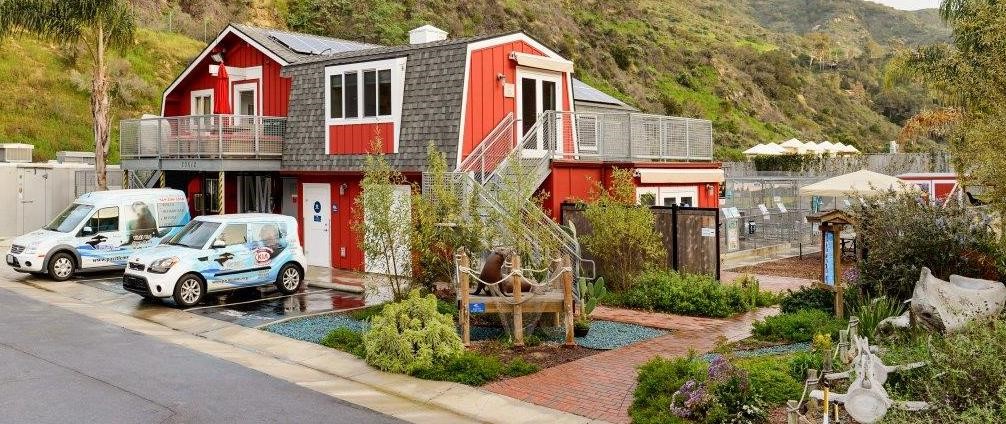 While these efforts have contributed greatly to saving emaciated animals, not every individual is deemed releasable. This is when accredited zoological institutions are asked to step in.
While these efforts have contributed greatly to saving emaciated animals, not every individual is deemed releasable. This is when accredited zoological institutions are asked to step in.
Accredited facilities like Ocean Connections are called upon to provide a forever home for animals that are unable to survive out in the wild. We welcomed the opporutnity to give this pup a second chance at life. In August 2017, the Ocean Connections animal care team welcomed this California sea lion to Milwaukee, Wisconsin with the help of multiple accredited zoological organizations and FedEx®. Our collaboration is rooted in our joint efforts in working diligently to save species worldwide. Ocean Connections is tremendously grateful for the assistance from the Pacific Marine Mammal Center, Alaska SeaLife Center, Milwaukee County Zoo, and FedEx® without whom this rescue would not be possible. FedEx® even graciously sponsored Moana! Transporting a sea lion is no easy task but FedEx®'s support is assisting in ensuring that her arrival is a happy homecoming for all parties involved. We are please to say that she continues to grow and is extremely healthy but our efforts do not stop here.
Moana’s case is not unique and scientists have been researching why a mass stranding of this particular marine mammal is occurring. Pollution, global climate change, and overfishing are just a few of the challenges these animals are facing. Domoic Acid Poisoning is affecting numerous species and is a major cause of their population decline. Domoic Acid is a naturally occurring biotoxin that does not present danger in small quantities. However this neurotoxin is produced by harmful algae blooms and in the last 20 years we have seen an alarming increase in its presence in our world oceans. 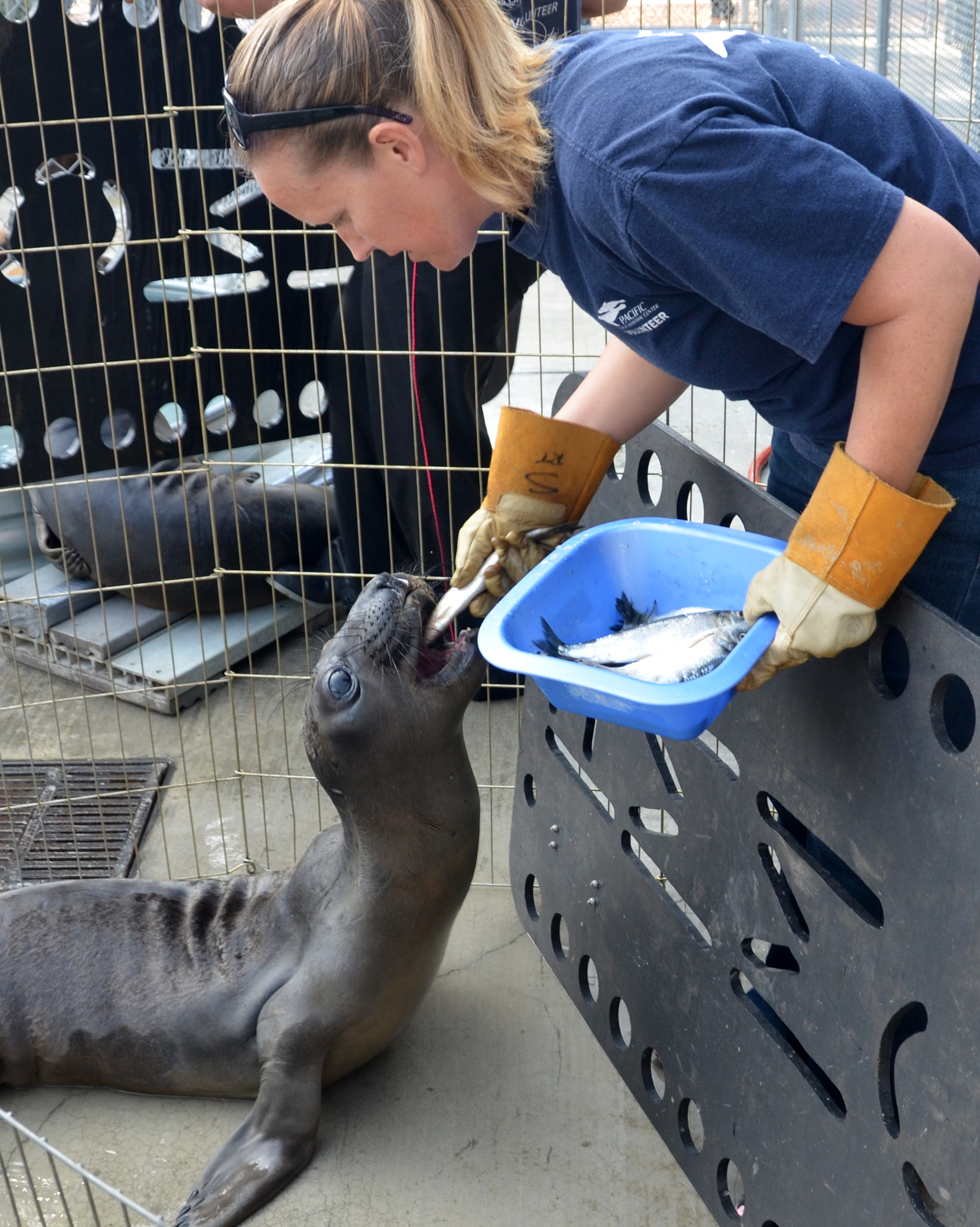 These blooms are consumed by fish which are then consumed by various animals. Seabirds, pinnipeds, and even humans are being affected once they digest too many contaminated fish. California sea lions are the pinniped most being affected by this toxin
These blooms are consumed by fish which are then consumed by various animals. Seabirds, pinnipeds, and even humans are being affected once they digest too many contaminated fish. California sea lions are the pinniped most being affected by this toxin 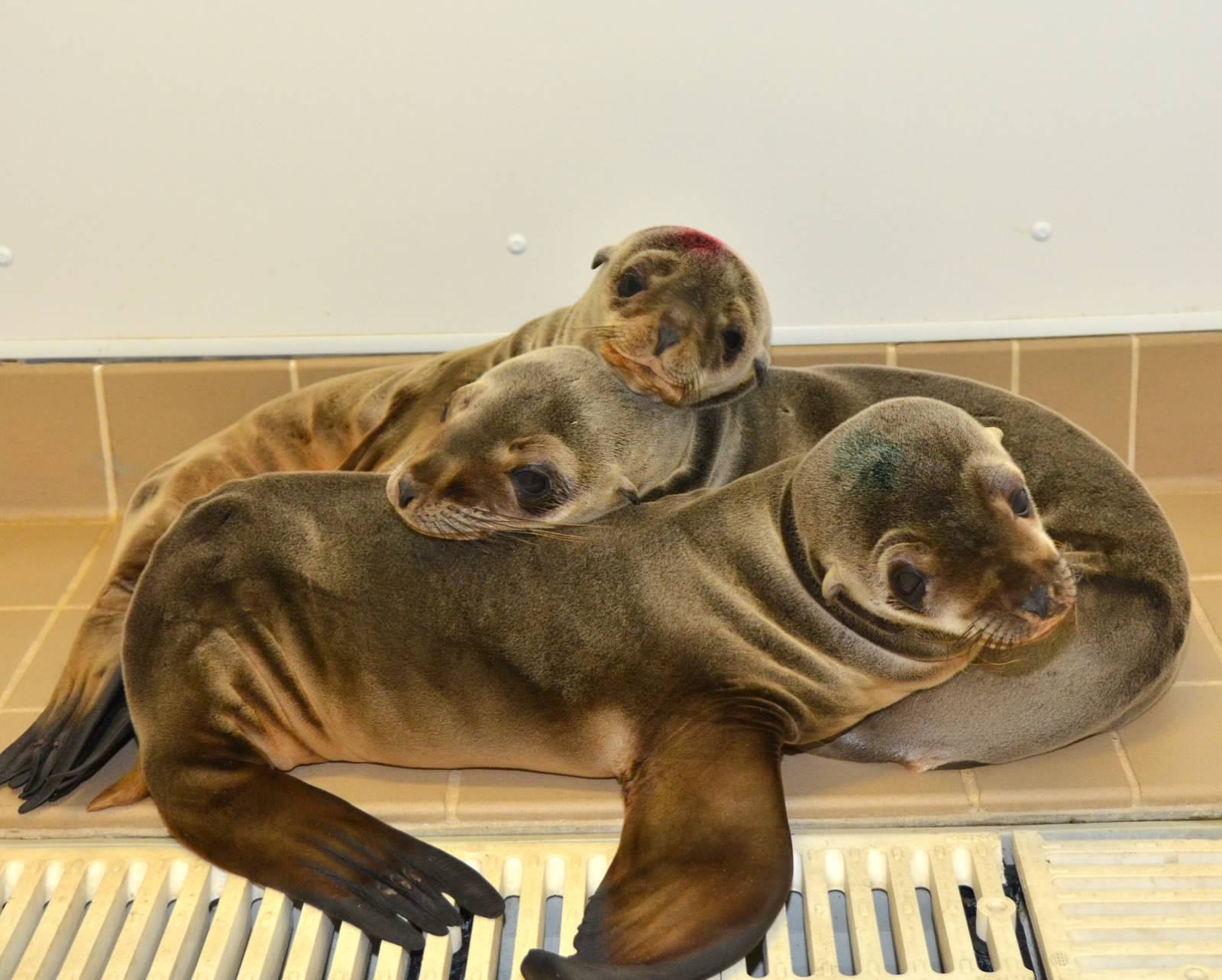 due to their food sources and foraging range which is making their future questionable.
due to their food sources and foraging range which is making their future questionable.
There's good news, though! By sharing Moana's story we can spread the word of the challenges animals just like her are facing out in the wild. We can work together with our friends, families, and communities to do simple tasks like recycling and reducing the amount of energy we use. When you visit accredited zoological institutions like Ocean Connections you are making a difference for the many species that call us home. Help us help them. If you would like to contribute to our conservation efforts and Moana's second chance you can do so by clicking here. For updates on Moana's progress visit her page or follow us on Facebook, Instagram, Twitter, and add us on Snapchat using the username oceansoffun!
Photos courtesy of the Pacific Marine Mammal Center




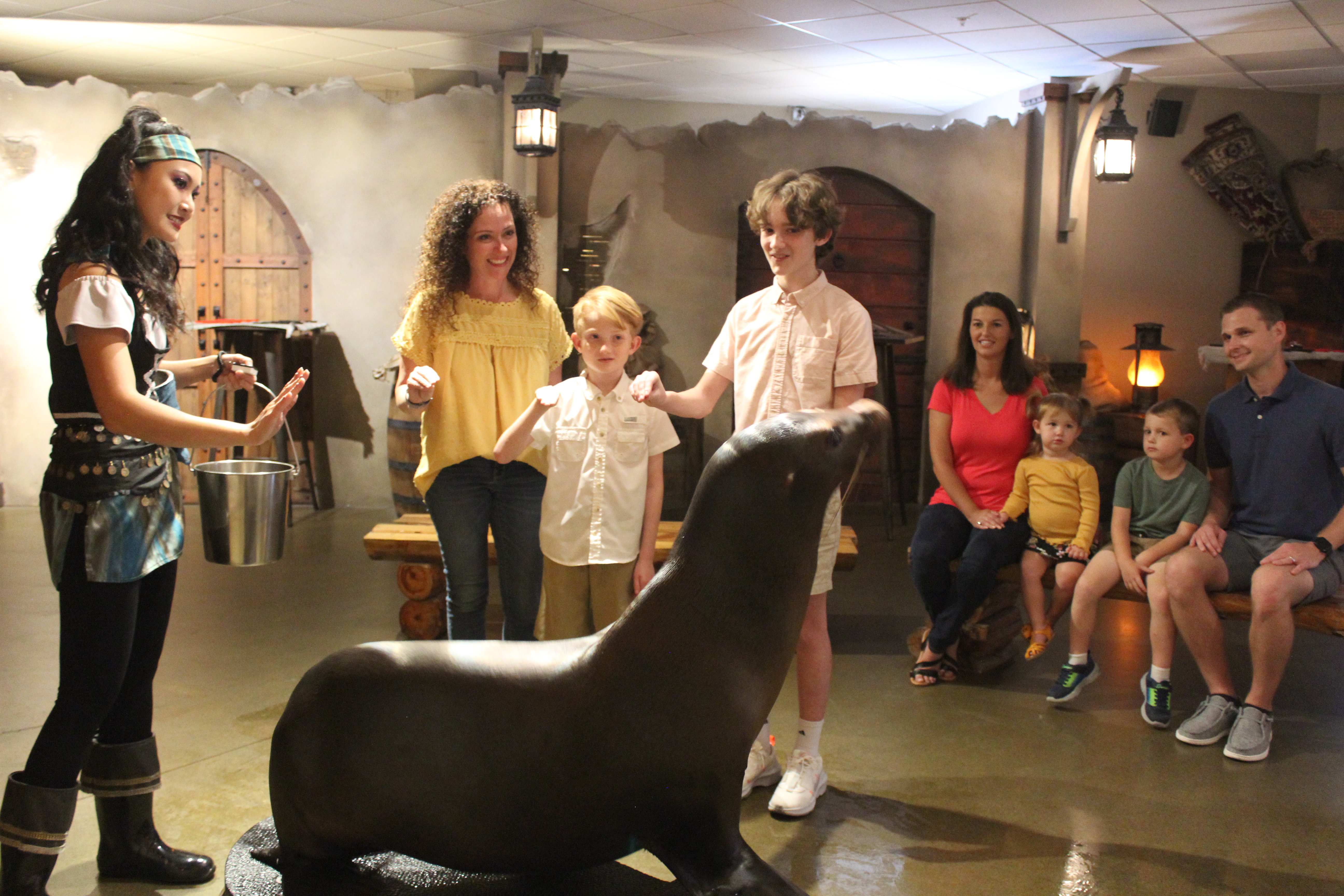 Animal Encounter
Animal Encounter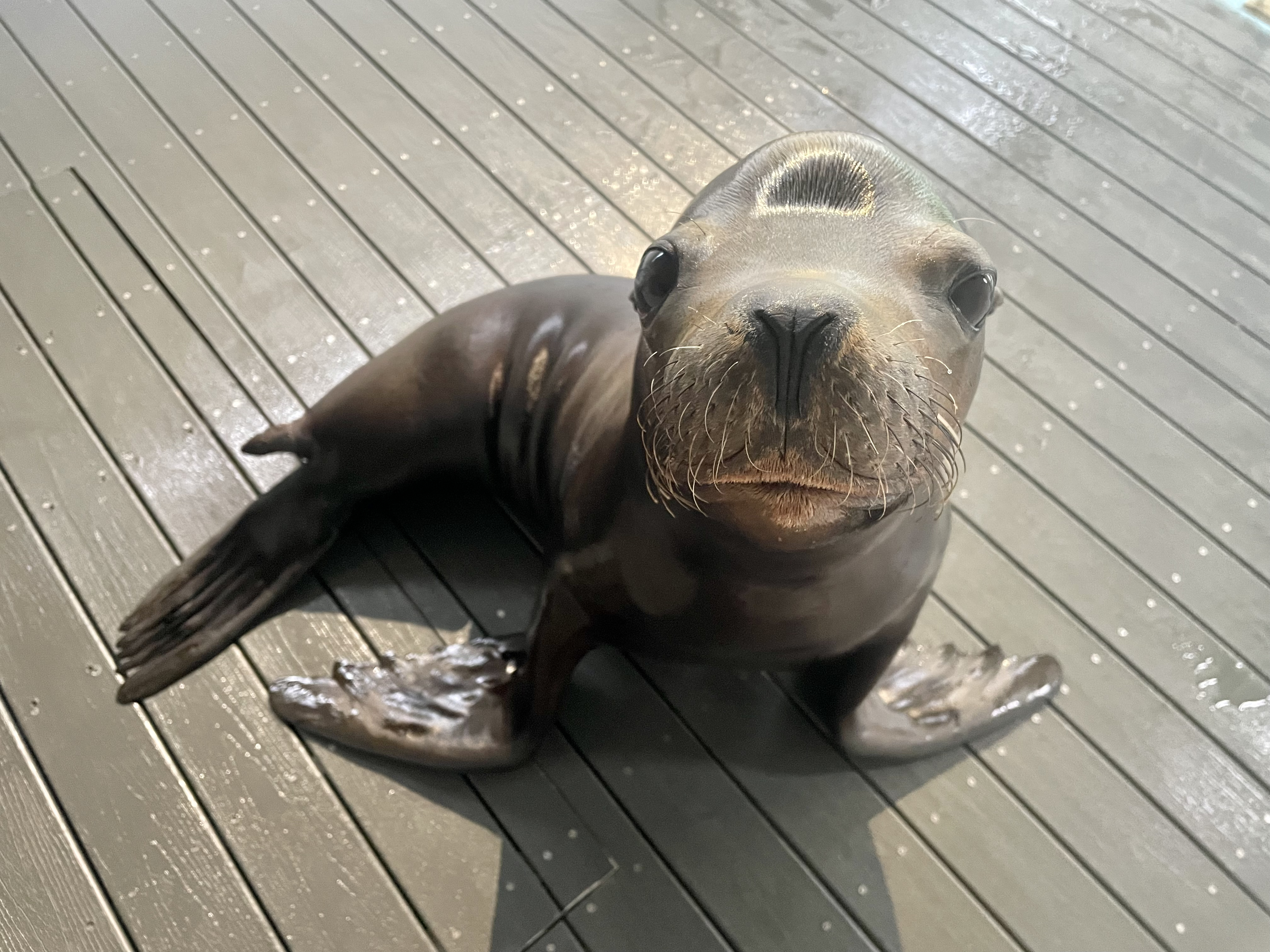 Our Locations
Our Locations
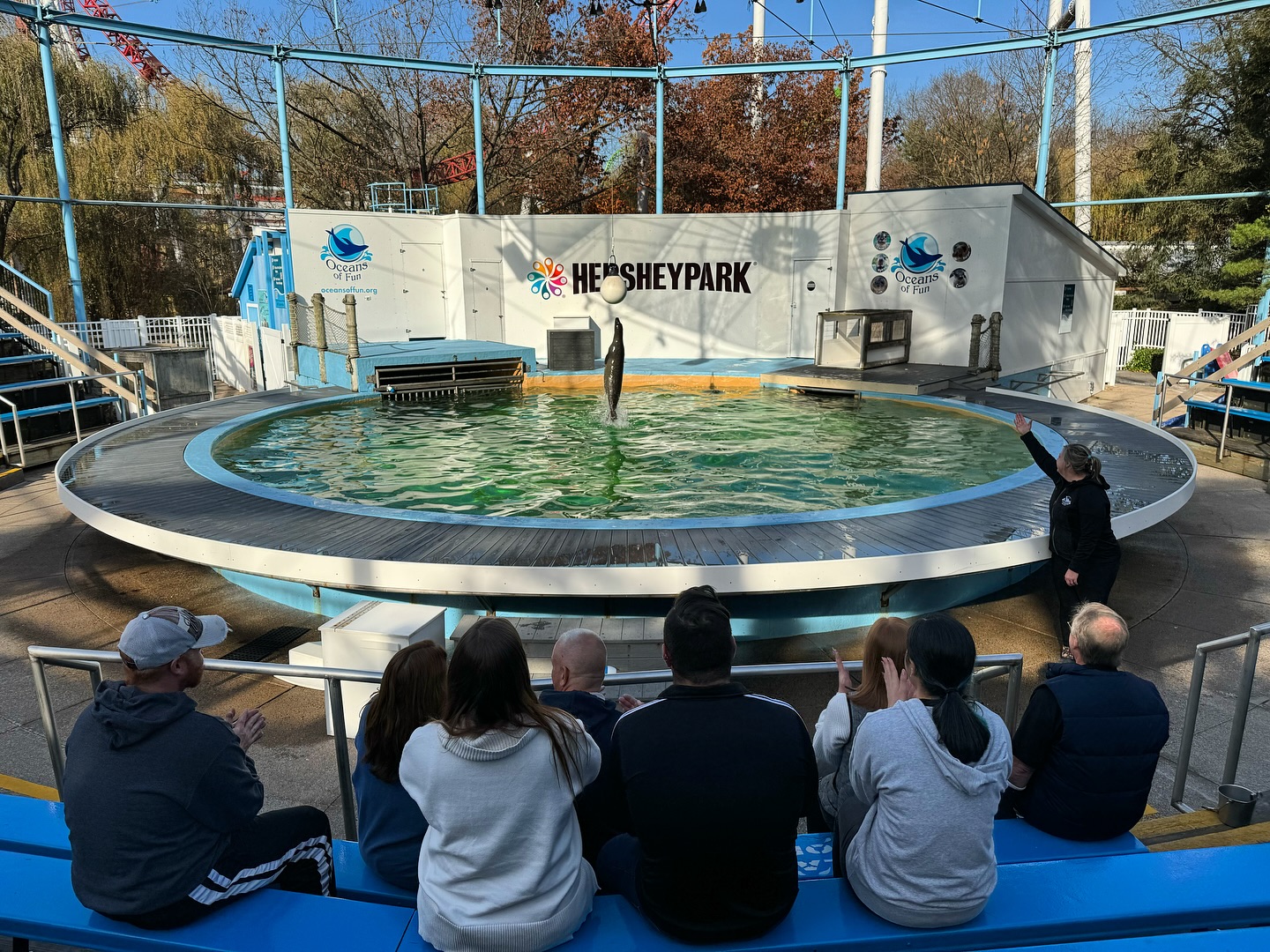 Family Fun
Family Fun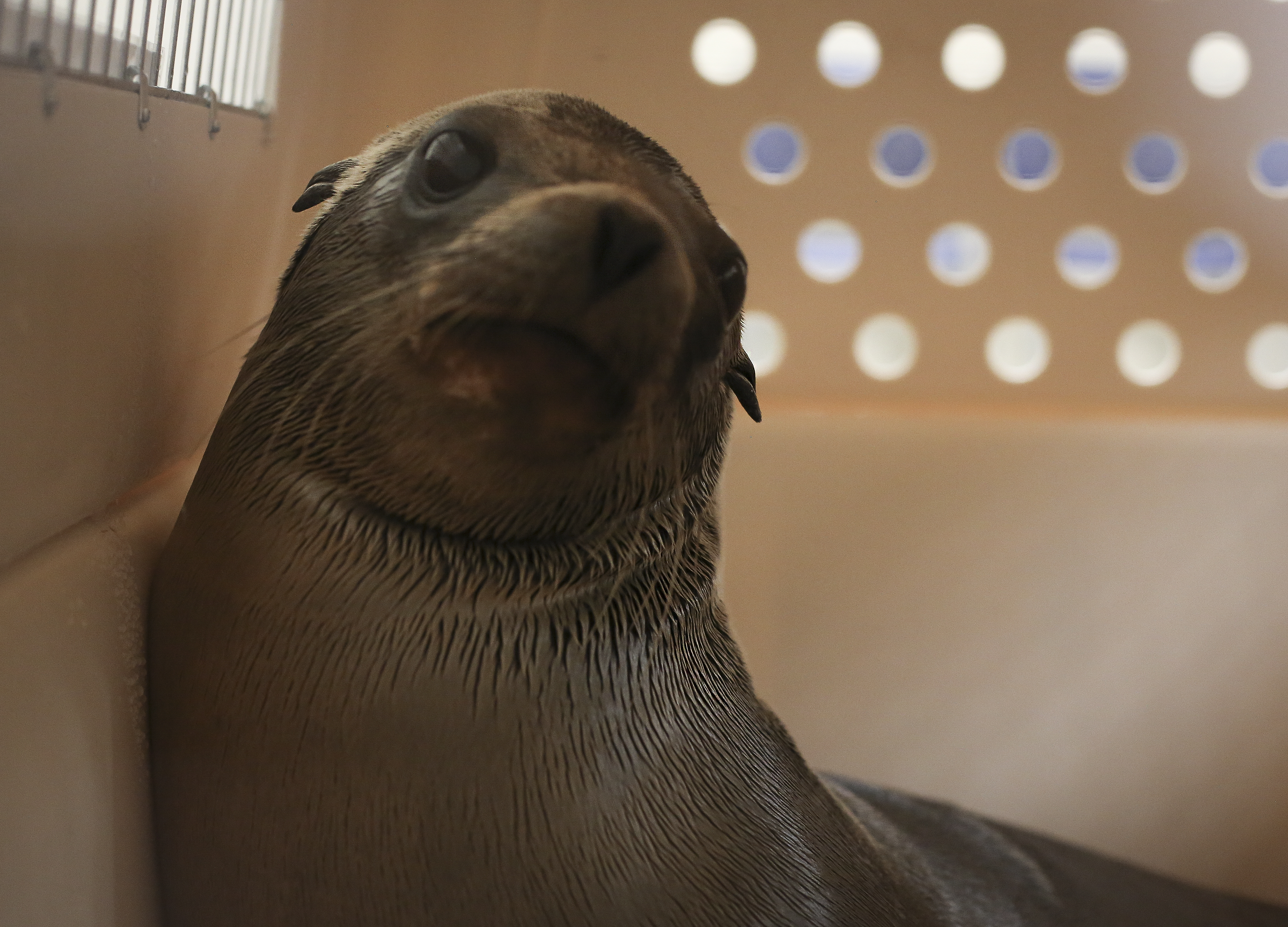
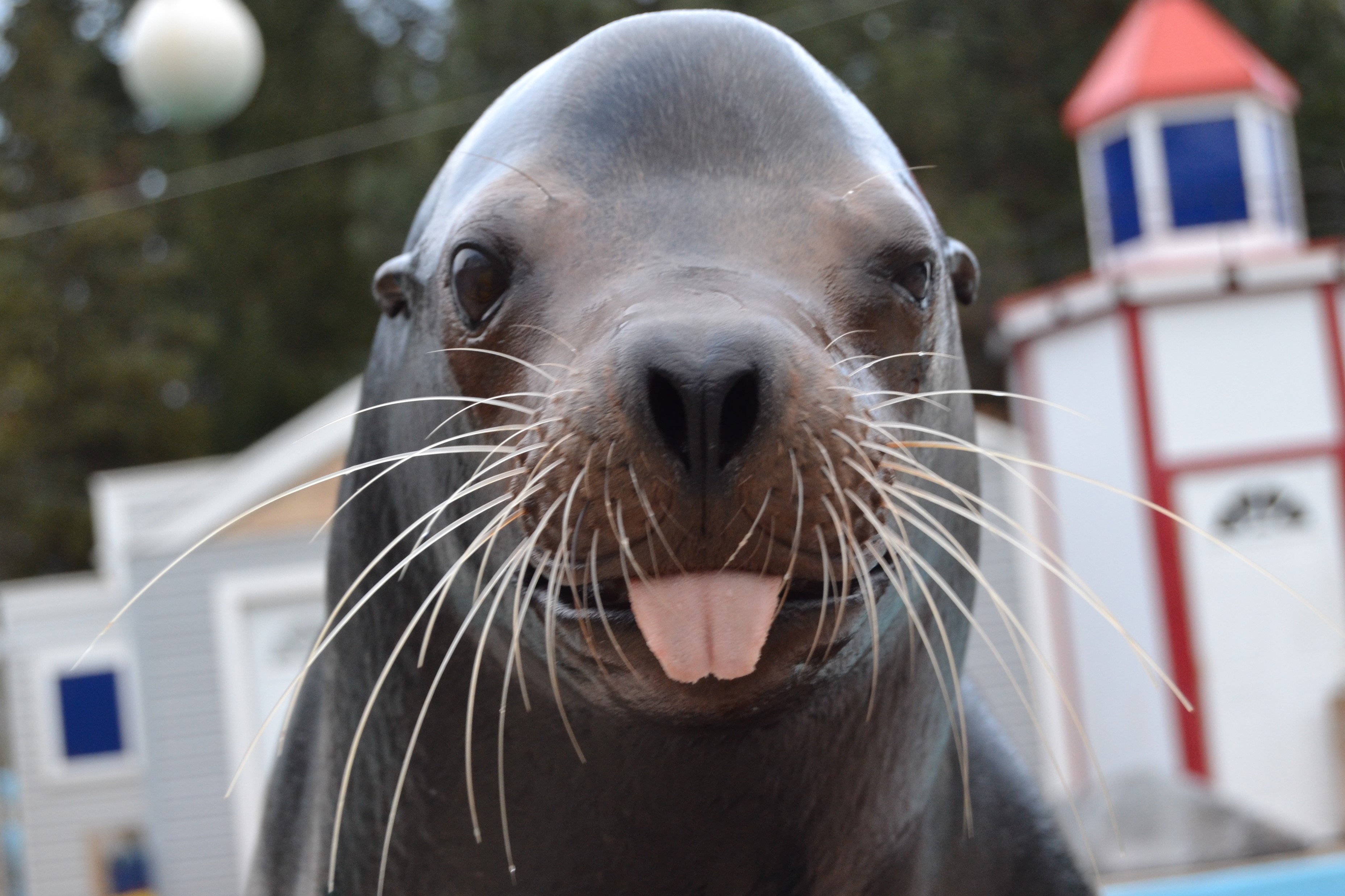
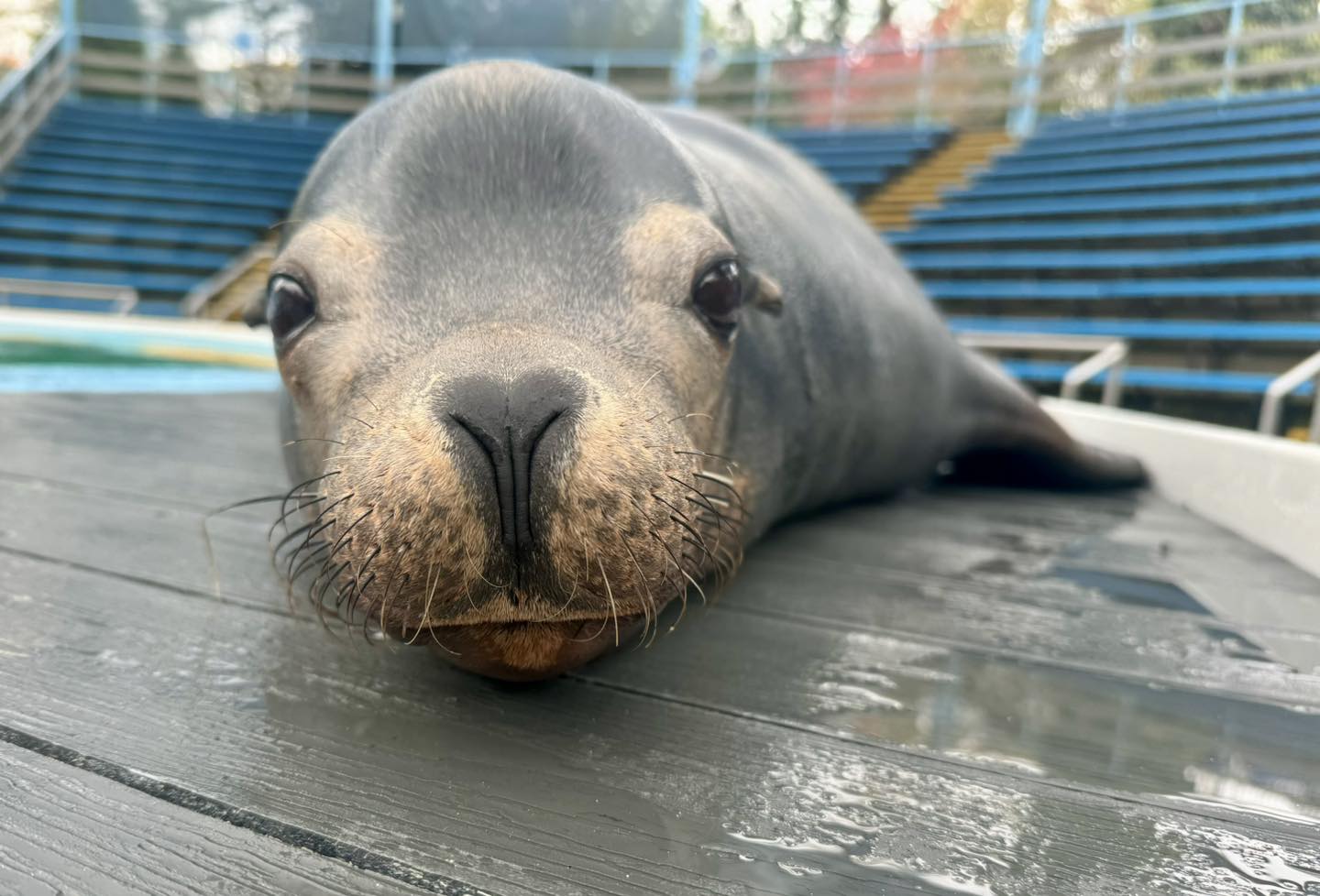 Meet Ripley!
Meet Ripley!
